
Historical negationism, also called historical denialism, is falsification or distortion of the historical record. It should not be conflated with historical revisionism, a broader term that extends to newly evidenced, fairly reasoned academic reinterpretations of history. In attempting to revise the past, historical negationism acts as illegitimate historical revisionism by using techniques inadmissible in proper historical discourse, such as presenting known forged documents as genuine, inventing ingenious but implausible reasons for distrusting genuine documents, attributing conclusions to books and sources that report the opposite, manipulating statistical series to support the given point of view, and deliberately mistranslating texts.
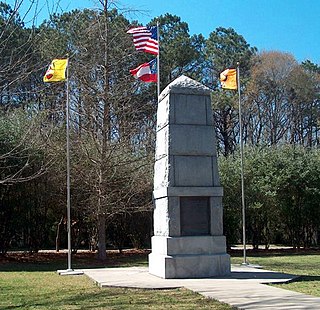
The Trail of Tears was the forced displacement of approximately 60,000 people of the "Five Civilized Tribes" between 1830 and 1850, and the additional thousands of Native Americans within that were ethnically cleansed by the United States government.
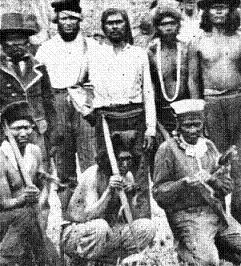
The Yuki are an indigenous people of California who were traditionally divided into three groups: Ukomno'om, Huchnom, and Ukohtontilka or Ukosontilka. The territory of these three groups included Round Valley and much of northern Mendocino County and Lake County. Today they are enrolled members of the Round Valley Indian Tribes of the Round Valley Reservation. The exonym "Yuki" may derive from the Wintu word meaning "foreigner" or "enemy."

Population figures for the Indigenous peoples of the Americas prior to European colonization have been difficult to establish. By the end of the 20th century, most scholars gravitated toward an estimate of around 50 million, with some historians arguing for an estimate of 100 million or more.
The history wars is a term used in Australia to describe the public debate about the interpretation of the history of the European colonisation of Australia and the development of contemporary Australian society, particularly with regard to their impact on Aboriginal Australian and Torres Strait Islander peoples. The term "history wars" emerged in the late 1990s during the term of the Howard government, and despite efforts by some of Howard's successors, the debate is ongoing, notably reignited in 2016 and 2020.

Indigenous peoples of California, commonly known as Indigenous Californians or Native Californians, are a diverse group of nations and peoples that are indigenous to the geographic area within the current boundaries of California before and after European colonization. There are currently 109 federally recognized tribes in the state and over forty self-identified tribes or tribal bands that have applied for federal recognition. California has the second-largest Native American population in the United States.
The genocide of Indigenous peoples, colonial genocide, or settler genocide is the intentional elimination of Indigenous peoples as a part of the process of colonialism.

The California genocide was a series of systematized killings of thousands of Indigenous peoples of California by United States government agents and private citizens in the 19th century. It began following the American Conquest of California from Mexico, and the influx of settlers due to the California Gold Rush, which accelerated the decline of the Indigenous population of California. Between 1846 and 1873, it is estimated that non-Natives killed between 9,492 and 16,094 California Natives. In addition, between several hundred and several thousand California Natives were starved or worked to death. Acts of enslavement, kidnapping, rape, child separation and forced displacement were widespread. These acts were encouraged, tolerated, and carried out by state authorities and militias.
The Asbill massacre refers to the murder of 40 Yuki people in Round Valley in 1854 by a band of six White explorers from Missouri.

The connection between colonialism and genocide has been explored in academic research. According to historian Patrick Wolfe, "[t]he question of genocide is never far from discussions of settler colonialism." Historians have commented that although colonialism does not necessarily directly involve genocide, research suggests that the two share a connection.

American Holocaust: Columbus and the Conquest of the New World is a multidisciplinary book about the indigenous peoples of the Americas and colonial history written by American scholar and historian David Stannard.
This is a select annotated bibliography of scholarly English language books and journal articles about the subject of genocide studies; for bibliographies of genocidal acts or events, please see the See also section for individual articles. A brief selection of English translations of primary sources is included for items related to the development of genocide studies. Book entries may have references to journal articles and reviews as annotations. Additional bibliographies can be found in many of the book-length works listed below; see Further Reading for several book and chapter-length bibliographies. The External links section contains entries for publicly available materials on the development of genocide studies.

Denial of genocides of Indigenous peoples consists of a claim that has denied any of the multiple genocides and atrocity crimes, which have been committed against Indigenous peoples. The denialism claim contradicts the academic consensus, which acknowledges that genocide was committed. The claim is a form of denialism, genocide denial, historical negationism and historical revisionism. The atrocity crimes include genocide, crimes against humanity, war crimes, and ethnic cleansing.
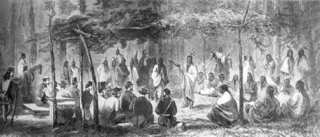
Indigenous response to colonialism has varied depending on the Indigenous group, historical period, territory, and colonial state(s) they have interacted with. Indigenous peoples have had agency in their response to colonialism. They have employed armed resistance, diplomacy, and legal procedures. Others have fled to inhospitable, undesirable or remote territories to avoid conflict. Nevertheless, some Indigenous peoples were forced to move to reservations or reductions, and work in mines, plantations, construction, and domestic tasks. They have detribalized and culturally assimilated into colonial societies. On occasion, Indigenous peoples have formed alliances with one or more Indigenous or non-Indigenous nations. Overall, the response of Indigenous peoples to colonialism during this period has been diverse and varied in its effectiveness. Indigenous resistance has a centuries-long history that is complex and carries on into contemporary times.
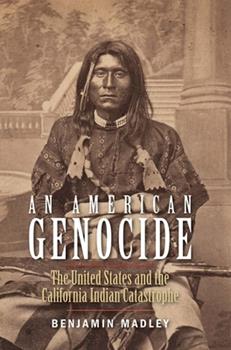
An American Genocide: The United States and the California Indian Catastrophe, 1846-1873 is a 2017 non-fiction book about the California genocide by history professor Benjamin Madley.
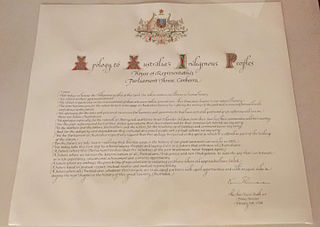
Apologies to Indigenous peoples refer to apologies extended by political leaders or representatives, acting on behalf of a political entity or nation, to acknowledge and express remorse for some historical wrong.
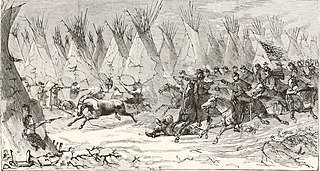
The destruction of Native American peoples, cultures, and languages has been characterized as genocide. Debates are ongoing as to whether the entire process and which specific periods or events meet the definitions of genocide or not. Many of these definitions focus on intent, while others focus on outcomes. Raphael Lemkin, who coined the term "genocide", considered the displacement of Native Americans by European settlers as a historical example of genocide. Others, like historian Gary Anderson, contend that genocide does not accurately characterize any aspect of American history, suggesting instead that ethnic cleansing is a more appropriate term.

The genocide of Indigenous Australians refers to the systematic and deliberate actions taken primarily by European settlers, particularly during the 18th to the 20th centuries, aimed at eradicating Aboriginal and Torres Strait Islander cultures, languages, and people. Motivations for the genocide varied, and included motivations aimed at preserving a 'white Australia', or assimilating Indigenous populations 'for their own good'.














